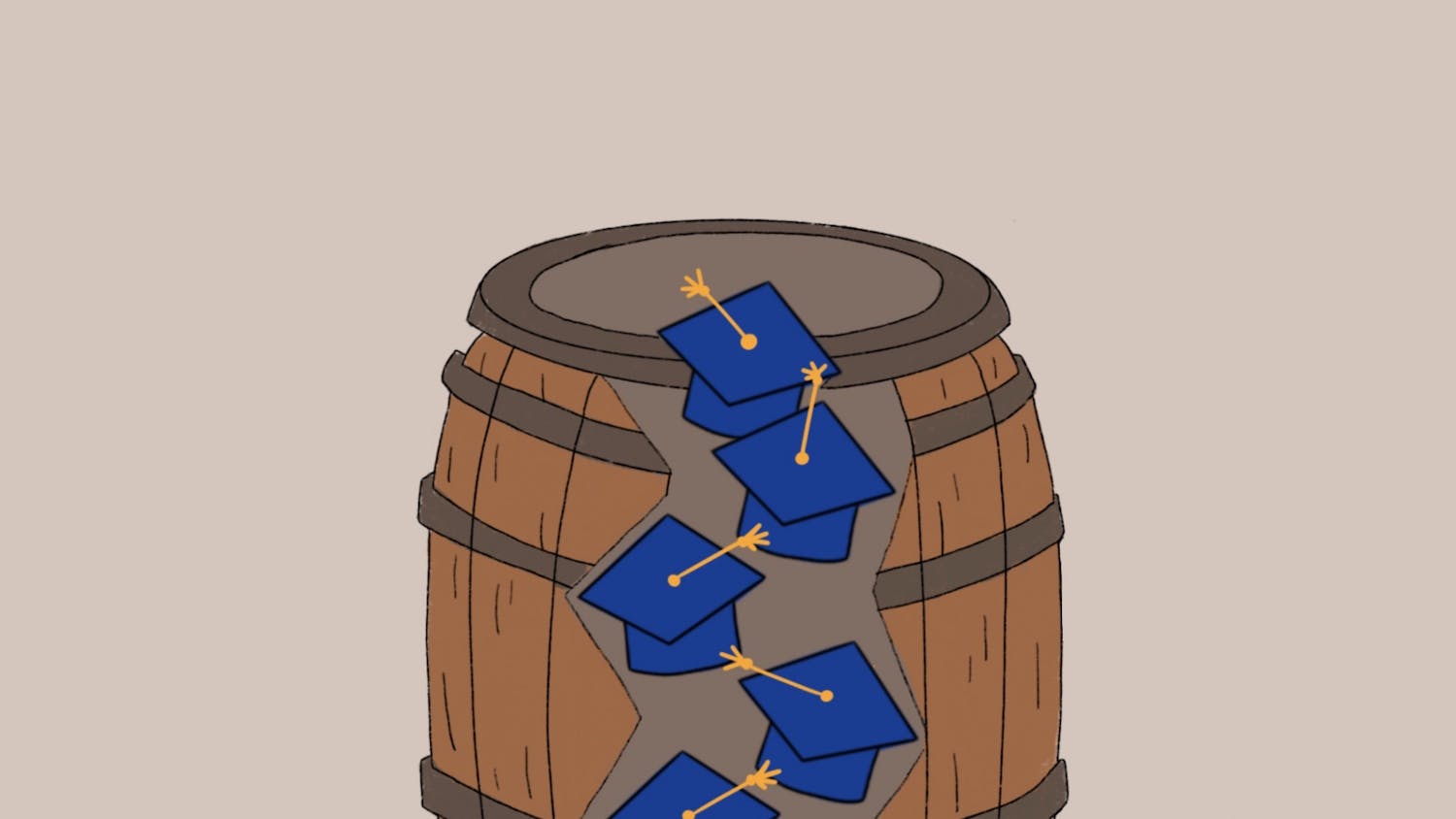Contrary to some opinion, Auburn administrators and Office of Information Technology employees don't analyze conversations between students or monitor which websites students peruse during their free time.
Bliss Bailey, OIT executive director, said the employees have better things to do than snoop students' email or Internet usage.
"We don't watch what websites people go to; that's not our job," Bailey said. "This is an academic institution. We don't believe in censorship; we don't care where you surf. You're an adult. We don't snoop email, we don't look at students' email. If a student gets in trouble over an email it's because of someone they sent it to did something with it."
All OIT employees must sign a form agreeing to maintain and protect the confidentiality of any information or data they access while working for the office.
Since Auburn adopted the Microsoft Live system for TigerMail, the student email servers don't exist on Auburn's campus nor does the OIT administer those servers. Bailey said Microsoft runs the student email system on Auburn's behalf.
With the previous system, copies of sent and received emails were kept on the servers, but with the new system, they are all on the Microsoft Cloud.
The federal Family Educational Rights and Privacy Act ensures the privacy of student records.
"We may end up seeing data because we work on computer systems, but even if I have access to your email it would be my obligation to keep that private," Bailey said. "Federal law requires that."
FERPA states the release of all educational records other than directory information is dependent upon student authorization. Directory information is allowed to be published so long the student is informed.
Bailey said the OIT has a strong stance on students' personal records.
"Your records are private, and we don't spread them around," he said.
Bailey said the OIT works with many different University programs when issues arise. The University Council, the Office of Student Conduct and the head of campus safety all collaborate on any query regarding employee or student information.
"We want to make sure we're doing everything we can do to protect the University from frivolous lawsuits and also protect the students' privacy," Bailey said. "We aren't a lone ranger."
In a time when social networking and email is on phones and tablets, online access is easy for most students. Bailey said he sees students get into trouble by not realizing the ramifications of what they send.
"Honestly, where most students get in trouble with email doesn't have anything to do with us," Bailey said. "Once you send an email it might as well be published. You've lost total control of that email. Once you send it, that's when it gets you into trouble because they get forwarded, they get printed, they get forwarded to folks that you don't necessarily know about. And from there, they make their way into places that you might not have expected it to."
Bailey said he believes the right policy is to treat emails as if they were being published in the newspaper.
For one Auburn employee, this became a reality.
Associate Athletic Director Kirk Sampson had all of his emails published in a deadspin.com article regarding his correspondence with reporters during the Cam Newton saga of 2010.
"Alabama State Law requires that state agencies' records are subject to public records requests," Sampson said. "They submitted a freedom of information request, asking for my email correspondence with the media regarding Cam Newton for a time period during 2010. The request was for any email I received or sent to the media in regards to Cam Newton."
Sampson wasn't informed on how the emails were going to be used.
Sampson said the athletic department is well educated and informed about the laws regarding freedom of information, so he always has to assume his emails are subject to request.
With the release of the emails in 2012, almost two years after they were sent, public perception was unlikely to change, but the deadspin.com article allowed the public to see the story from a different perspective.
"More than anything, I think (the story) gave people insight to what things were like during that time period," Sampson said. "Regardless of the subject matter, we are always concerned with our image and perception. Generally, if you do things the right way and with integrity, the truth will prevail."
Handouts with lists of AU-WiFi policies are available, but if a student is harassing another student, it doesn't matter how it's occurring, only that is it occurring.
"We try and take the point of the view that it's not the medium, it's the message," Bailey said. "If you look at the code of student conduct, there aren't really references to Facebook or email. There are references to harassing communication.
"If you harass someone, the medium doesn't matter. It doesn't matter if it's Facebook or email or you chipped it in the sidewalk with a chisel; it's harassing communication either way. We've tried to separate the technology involved to the intent of the communication involved."
When a student is in trouble for email activity, the OIT sometimes doesn't even find out about the issue. Most situations involve an email that is easily printed and used for evidence, so there is no need to comb the databases for the specific message.
The OIT might not be involved in many student harassment cases, but they serve as the "middleman" for copyright cases.
Auburn complies with H.R. 4137, the Higher Education Opportunity Act, regarding any copyright infringement. The law requires institutions to "make an annual disclosure that explicitly informs the students that the unauthorized distribution of copyrighted materials may subject them to criminal and civil penalties and describes the steps that institutions must take to detect and punish unauthorized distribution of copyrighted materials."
"That's a pretty big burden on us," Bailey said. "That's the closest thing we do to monitoring the network in relation to content. When it comes to copyrighted material, that goes back to federal law. We do have an obligation to prevent the spread of copyrighted material."
OIT has "intrusion prevention systems" that stop peer-to-peer file sharing sites, but the office can't catch all illegal data transfers. Bailey said a handful of times each week they will get letters from the Motion Picture Association of America or a lawsuit representing a copyright holder calling for a cease and desist of the illegal activity.
The OIT passes along the information to the student without releasing any personal information to the public. If subpoenaed, they would have to inform the law firm with the student's information.
Bailey said Auburn helps protect Auburn students' privacy while abiding by federal law under their current budget.
"I think we try and follow fairly standard university practices," he said. "We try and follow the established, best practices. I'd say we're pretty diligent, but we don't have the resources.
"It's everything we can do to keep up with the legal and commercial compliance expectations. We're keeping up, but we don't have anything extra."
Do you like this story? The Plainsman doesn't accept money from tuition or student fees, and we don't charge a subscription fee. But you can donate to support The Plainsman.




